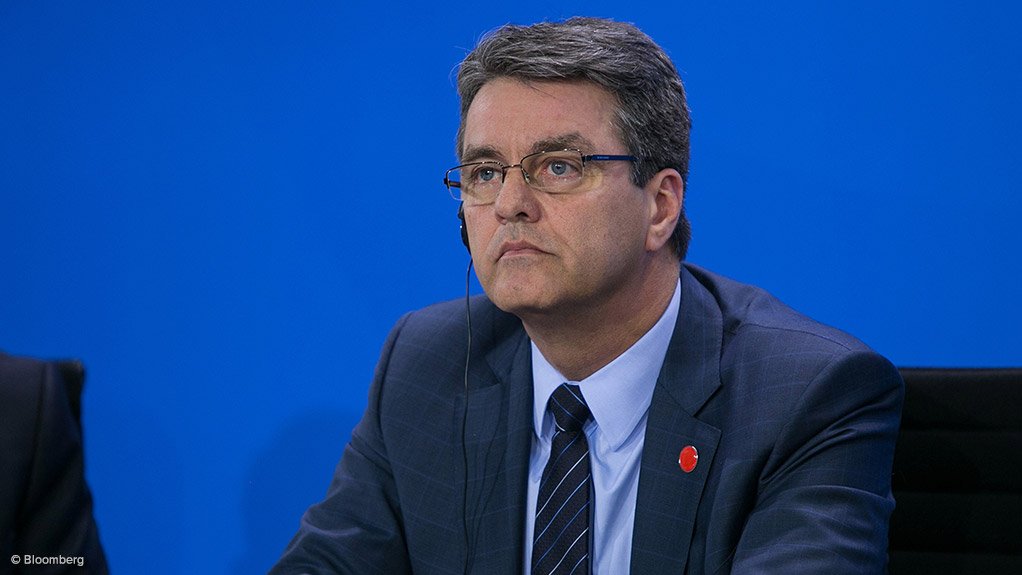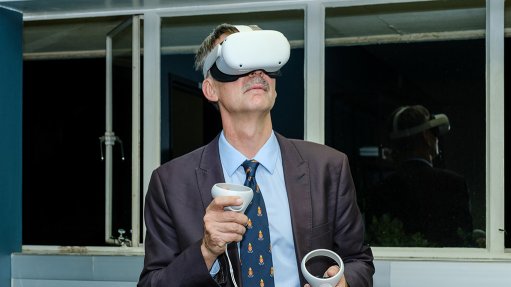Trade promotion to remain crux of UN’s Post-2015 Development Agenda
World Trade Organisation (WTO) director-general Roberto Azevêdo assured the organisation’s General Council on Thursday that trade will continue to be a focus in the post-2015 Development Agenda, with a primary goal being the achievement of a “significant” increase in developing countries’ exports.
The post-2015 Development Agenda is a United Nations- (UN-) led process aimed at defining a global development framework that would succeed the UN Millennium Development Goals (MDGs) – a set of eight global development targets set for achievement by 2015.
The post-2015 Development Agenda was currently being discussed at the UN, with national consultations on conflict and fragility, education, environmental sustainability, governance, growth and employment, health, hunger, food and nutrition, inequalities, population dynamics, energy and water under way in over 70 countries.
Addressing the WTO council, Azevêdo said work on the agenda and its new set of sustainable development goals (SDGs) was now entering its final phase.
“I believe any development agenda that is people-focused and forward-looking must have a strong emphasis on the economic aspects of human development. The role of trade must also be central and should be based on four key principles,” he stated.
He added that, firstly, the role of trade should not “simply” be reduced to trade liberalisation but should be recognised more broadly as a development policy instrument.
Secondly, as the WTO and its rules governing global trade had “proven their worth” in the context of the MDGs – both as a building block for economic growth and as a buttress against trade protectionism – these should continue to play this role in the post-2015 agenda through to 2030, he suggested.
Azevêdo also believed that the WTO’s Bali Package – a trade agreement resulting from the Ninth Ministerial Conference of the WTO in 2013 – as well as the Doha Declaration Agenda work programme could support the delivery of the new SDGs.
“For example, our work in support of Aid for Trade and the Enhanced Integrated Framework for least developed countries (LDCs) is important here, as is our work with donors on the WTO Trade Facilitation Agreement Facility. This will support other areas of work across [the] post-2015 [agenda],” he asserted.
Lastly, he maintained that the SDGs should promote policy coherence at the global level, adding that the multilateral trading system should be referenced in the emerging framework of the post-2015 Development Agenda.
“Failure to place more emphasis on the role of trade as an enabler for achieving these broader goals would be a real setback for policy coherence.”
Azevêdo’s assertions followed the adoption of a proposal for SDGs by the UN’s Open Working Group on SDGs last week. This text would now be forwarded to the UN General Assembly and would be the basis for the incorporation of these goals into the post-2015 Development Agenda.
The issue of trade was reflected in the adopted text on SDGs under Goal 17, which aimed to strengthen the implementation of the goals and the global partnership for sustainable development.
“This goal, which is yet to be finalised, currently contains a trade section with three targets: the promotion of a universal, rules-based, open, nondiscriminatory and equitable multilateral trading system under the WTO; a significant increase in the exports of developing countries, including doubling the LDCs share of global exports by 2020; and the timely implementation of duty-free, quota-free market access on a lasting basis for all LDCs,” he noted.
However, Azevêdo argued that trade was still not as prominent as it should be – particularly under Goal 8 – which dealt with economic growth.
“Trade is a fundamental element of economic growth and development, so I think we have more to do.”
He added that the WTO Public Forum in October would be dedicating a full day to analysing trade in Africa and investigating how the WTO could help African countries’ efforts to increase economic growth and alleviate poverty.
Comments
Announcements
What's On
Subscribe to improve your user experience...
Option 1 (equivalent of R125 a month):
Receive a weekly copy of Creamer Media's Engineering News & Mining Weekly magazine
(print copy for those in South Africa and e-magazine for those outside of South Africa)
Receive daily email newsletters
Access to full search results
Access archive of magazine back copies
Access to Projects in Progress
Access to ONE Research Report of your choice in PDF format
Option 2 (equivalent of R375 a month):
All benefits from Option 1
PLUS
Access to Creamer Media's Research Channel Africa for ALL Research Reports, in PDF format, on various industrial and mining sectors
including Electricity; Water; Energy Transition; Hydrogen; Roads, Rail and Ports; Coal; Gold; Platinum; Battery Metals; etc.
Already a subscriber?
Forgotten your password?
Receive weekly copy of Creamer Media's Engineering News & Mining Weekly magazine (print copy for those in South Africa and e-magazine for those outside of South Africa)
➕
Recieve daily email newsletters
➕
Access to full search results
➕
Access archive of magazine back copies
➕
Access to Projects in Progress
➕
Access to ONE Research Report of your choice in PDF format
RESEARCH CHANNEL AFRICA
R4500 (equivalent of R375 a month)
SUBSCRIBEAll benefits from Option 1
➕
Access to Creamer Media's Research Channel Africa for ALL Research Reports on various industrial and mining sectors, in PDF format, including on:
Electricity
➕
Water
➕
Energy Transition
➕
Hydrogen
➕
Roads, Rail and Ports
➕
Coal
➕
Gold
➕
Platinum
➕
Battery Metals
➕
etc.
Receive all benefits from Option 1 or Option 2 delivered to numerous people at your company
➕
Multiple User names and Passwords for simultaneous log-ins
➕
Intranet integration access to all in your organisation





















